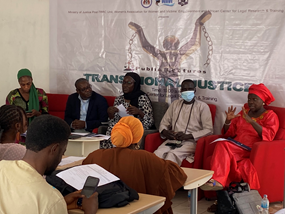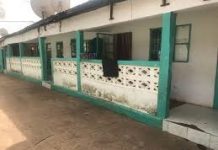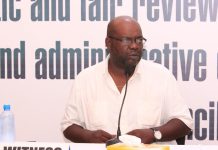By Mustapha Jallow
Women’s Association for Women and Victims Empowerment (WAVE) and its partners on Friday, 10 May 2024 held a public lecture on transitional justice.
The lecture was organised in collaboration with the African Center for Legal Research and Training. The aim was to help the country’s ongoing reconciliation and peace process. The one-day lecture brought together human rights activists, law students, victims and government representatives among other stakeholders.
Tabu Njie Sarr, a rights activist said some people who aided the ex-dictator YahyaJammeh in dividing and abusing Gambian citizens are still working in the current regime.
“We need peace processes to reconcile and establish some institutions that can help us to reconcile once again,” she said.
Njie lamented how former President Yahya Jammeh had used State institutions to perpetrate human rights violations. She stated that she believed reconciliation can only be achieved through religion and culture.
“If we don’t reconcile, it would be very difficult for us to develop as a nation,” she said, adding that “we can use religions, traditional ways, and joking relationships between tribes to reconcile divided people and communities.”
“We have come from 22 years of destruction, especially within the social fabric of this country, which calls for us to establish a peace commission. Since we are divided at the grassroots level – we need a peace process to resolve these problems,” Njie said.
Kebba Secka, a follower of Sering Ndigal and a victim of rights violation by the former regime advocated for more sensitisation on the importance of reconciliation. He said there is need for re-educate people so that the mantra of ‘Never Again’ coined after the fall of the repressive regime would be achieved.
Imran Darboe, Advocacy Specialist at the Center for the Study of Violence and Reconciliation said accountability and reparations have to be initiated for victims to have confidence that something is being done in a way to encourage them towards reconciliation.
He said the Government should ensure the process of reconciliation is all-inclusive and civil society should take the lead.
Magistrate Peter Adoh Che said such engagement needs to be more decentralised, especially in rural communities to ensure the people become enlightened about the process. He encouraged them to ensure that the grassroots are not left out in the process.





















